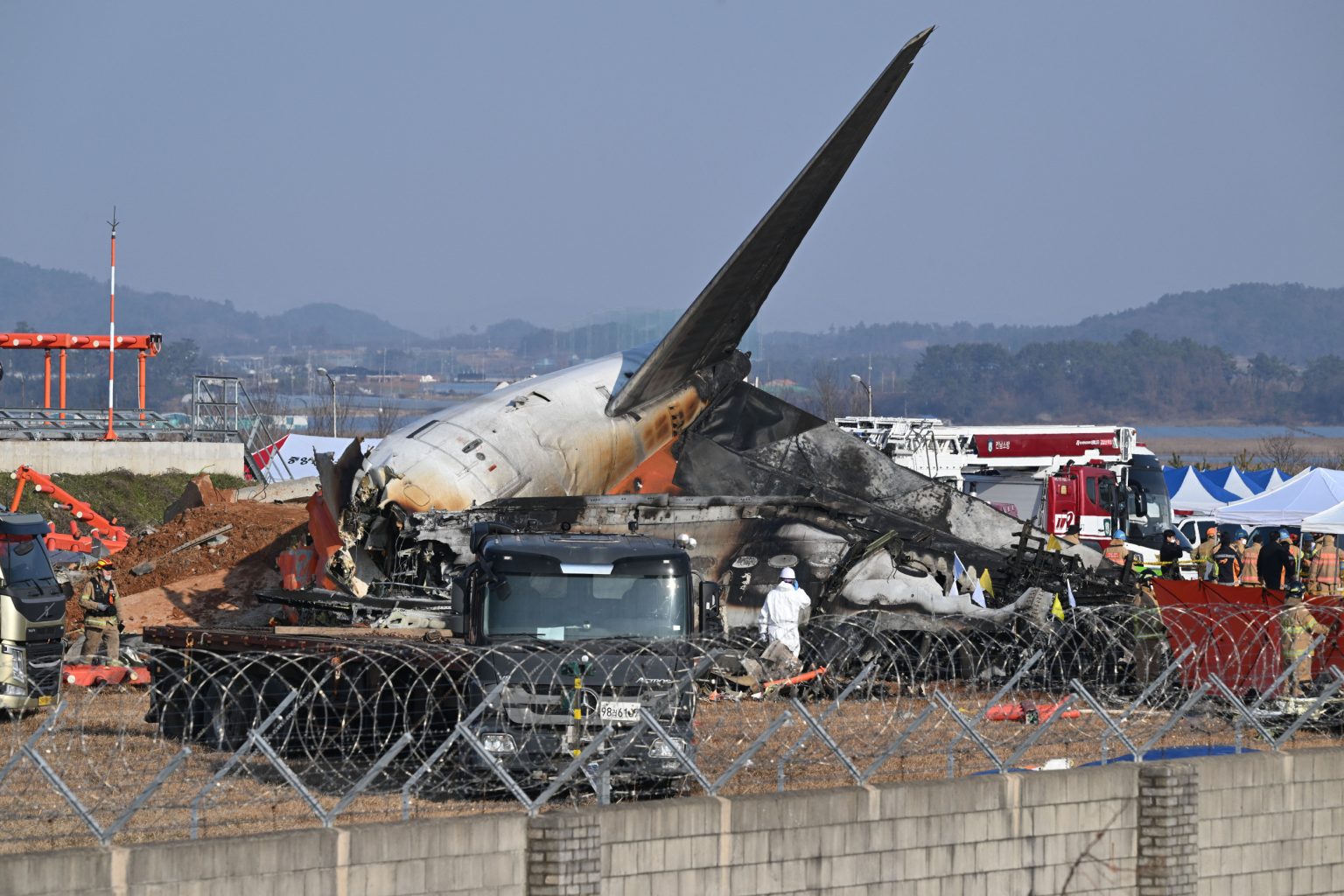The catastrophic crash of a Jeju Air Boeing 737-800 at Muan International Airport in South Korea on Sunday, claiming the lives of at least 179 people, has sparked intense scrutiny and raised critical questions surrounding the circumstances of the accident. While initial reports from the control tower indicated a bird strike warning just prior to the crash, aviation experts have expressed skepticism that this alone could have led to such a devastating outcome. The incident, occurring amidst a period of political upheaval in South Korea, adds another layer of complexity to the unfolding investigation. The tragedy also spotlights Boeing, which has faced ongoing scrutiny this year following a series of quality control issues with its aircraft.
The ill-fated flight, carrying 181 passengers and crew, was returning from Bangkok when the incident occurred. Upon receiving the bird strike warning, the pilot issued a distress signal and was granted permission for an emergency landing. However, the aircraft overshot the runway, colliding with a perimeter wall and bursting into flames. Video footage capturing the final moments reveals the plane skidding down the runway without deployed landing gear, suggesting a critical failure in this system. While two crew members were rescued with non-life-threatening injuries, the vast majority of those on board perished.
Several aviation experts have weighed in on the incident, casting doubt on the bird strike theory as the sole cause of the crash. Airline News editor Geoffrey Thomas questioned the preparedness of emergency responders, citing the absence of foam on the runway and their delayed arrival at the crash site. He further questioned the aircraft’s landing position so far down the runway and the presence of a brick wall at its end. Thomas acknowledged that bird strikes are common occurrences but rarely cause the complete loss of an aircraft on their own.
Australian aviation experts Geoffrey Dell and Trevor Jensen echoed these sentiments. Dell highlighted the improbability of a bird strike preventing landing gear deployment and pointed out that even if a flock of birds had been ingested by the engines, the pilots would have had some time to react. Jensen also emphasized the unusual nature of the plane’s failure to decelerate after touchdown. These expert opinions underscore the need for a thorough investigation to determine the root cause of the tragedy and rule out other contributing factors.
The incident has sent shockwaves through the aviation industry and prompted immediate responses from involved parties. Jeju Air CEO Kim E-bae expressed profound condolences and apologies to the victims’ families, acknowledging the gravity of the situation. While awaiting the official investigation results, he accepted full responsibility as CEO. Boeing also issued a statement expressing condolences and pledging support to Jeju Air during this challenging time.
The South Korean government has launched a full-scale investigation into the crash, with the recovery of the flight data recorder from the black box being a crucial first step. The search continues for the cockpit voice recorder, which is expected to provide further insights into the communication and actions of the flight crew during the critical moments leading up to the impact. The investigation will likely focus on several key areas, including the potential role of the bird strike, the apparent landing gear malfunction, the emergency response procedures, and the overall maintenance history of the aircraft. The findings will be critical not only for understanding the specific circumstances of this tragedy but also for improving aviation safety protocols and preventing similar incidents in the future.

